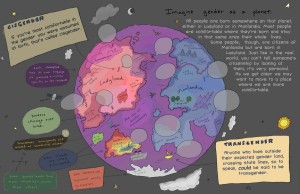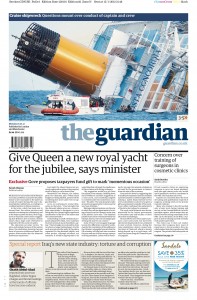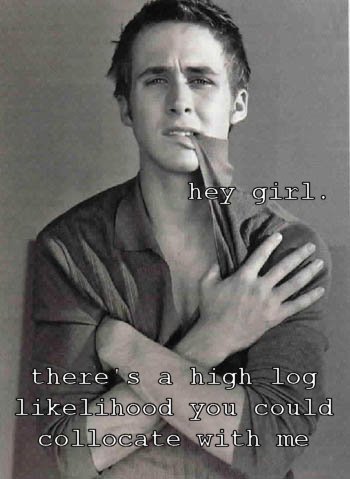On Saturday night I was singing in the University Choir, performing Mahler’s 2nd symphony. There’s a review up by Professor Stephen Mumford in which he notes that “music especially gives us access to the sublime”. As a singer and performer of music I won’t argue with that; there is something especially transcendental about being one voice among many, knowing your part perfectly and combining to create a glorious, complex sound.
However, I’ve also found singing a particularly rewarding experience as a PhD researcher. We were singing in the fifth movement of Mahler’s second symphony which is less than 15 minutes of actual singing, but we still rehearsed for at least two hours a week and sometimes closer to five hours. The intense focus reminded me of an extreme form of close reading, where engagement with the text is all there is and everything else ceases to be. Every rehearsal brought something new; a different nuance to be coaxed out of the text through a diminuendo, a different shade of meaning expressed through a quaver rest.
Singing requires a different kind of concentration – you can’t be distracted or only half pay attention to the words and music you’re singing. It requires all of my focus and attention, yet I find it calls for a different kind of focus and attention than my PhD demands. Ultimately, it’s a communal concentration – I am focused on my score, the person conducting, blending my voice with the other people singing my part, and listening to what the other parts are doing. It’s very different from the often intensely solitary work of my PhD. I also find it gives me permission for switch off from PhD work without feeling guilty or lazy; and in fact, more often than not, I find myself refreshed by the change and ready to get back to work.
As well as a relationship with the rest of the choir, singing also creates a relationship between the singer and the conductor. As part of the choir, I was struck by the sense of connection Jonathan Tilbrook established with us. He’s an expressive conductor with eloquent, fluid gestures – during the performance I was mesmerised by his fluent conducting of the orchestra. Jonathan encourages a suppleness and responsiveness; when he was conducting us, he, quite literally, held the power of an 140-strong choir in his hands and could ask for ppp or fff with one gesture. We were there at his fingertips, our voices ready to soar or quieten to almost a whisper if he asked for it. While obviously you can’t abdicate all responsibility and expect the conductor to indicate every change in dynamic, Jonathan clearly knew what guidance we would find helpful. My worries about a difficult entry melted away as I realised that he would tell us when to come in. Again, this is different from the PhD experience of uncertainty. One of the things I was unconsciously struggling with was the responsibility and pressure of becoming the expert in my area. It was with a feeling of relief that I could relinquish control and trust someone else to guide me for at least a few hours.
I often feel a sense of disconnection from my body for a number of reasons, and this blog isn’t the place to go into detail. As a researcher, I find myself neglecting it – sleep? eat? but I’m too busy! – and resenting its demands. Singing, however, is one of the most physical things I do. Far from being something non-physical, singing is an embodied act. When you sing, your body becomes an exquisitely sensitive, expressive instrument. You support the sound with your diaphragm and abdominal muscles; you produce different sounds through the complex interaction of your vocal cords, the space inside your mouth, your tongue, your soft palate, your lips. As a linguist I knew exactly what the chorusmaster meant when he asked for open vowels, closed vowels, more schwa (and oh, how interestingly different from my experiences singing church Latin!). You have to be relaxed to produce a clear sound; tension will affect your tone. Simultaneously, you have to be aware of your posture; you can’t sing when if you’re hunched up or slouching. It’s a complex balance that requires body awareness. I’m fascinated by how our physical practices shape our bodies and how you can read a history in someone’s skin and muscles. It’s very satisfying to allow something I love so much to shape me, carve me into something that makes me an even better singer. And, in doing so, it challenges the Cartesian dualism that allows me to conceptualise a mind-body split. What singing does is merge the two, gently reproaching me for even thinking of my body as mere transport for my mind.
As well as offering a useful counterpoint for my life as a PhD researcher, this involvement with music also makes me a better teacher. On Friday I was teaching on metaphor. One of the exercises my students had to do was slot different words into some constructions, such as A is the B of C and A is like B to make metaphors. We’d then discuss the target domain (what you’re trying to talk about) and the source domain (the ideas you’re drawing on to talk about it), and discuss the features of the source domain that made the metaphor work. For some reason, my students really liked “music” as a source domain, coming up with things like “patience is the music of love”. When I asked them what made that particular metaphor work, they said things like “music is beautiful” and “music makes me feel happy”. I tried to encourage them to think about other features of music that might disrupt the neatness of the metaphor: that it can be complicated, that looking at a full orchestral score can be overwhelming, that learning to play an instrument often involves frustration and creating some truly awful noises, that making something look effortless and graceful requires hard work. I could explore that metaphor more fully with my students because I do have this musical background, and hopefully enrich their understanding and learning experience.
I’ve never been the kind of person who can relax by watching TV or films. Sometimes the PhD makes reading seem more of a chore than something you do to escape it. But in singing, I find something that is active and engaging enough to be stimulating, yet different enough from work to be relaxing. It’s a delicate balance between it being challenging enough to not get boring and it becoming too much like more work – I’ve never got on well with music exams. But music, and singing in particular, is such an important thing to have in my life and I’m lucky to be in a university community that encourages my involvement.



